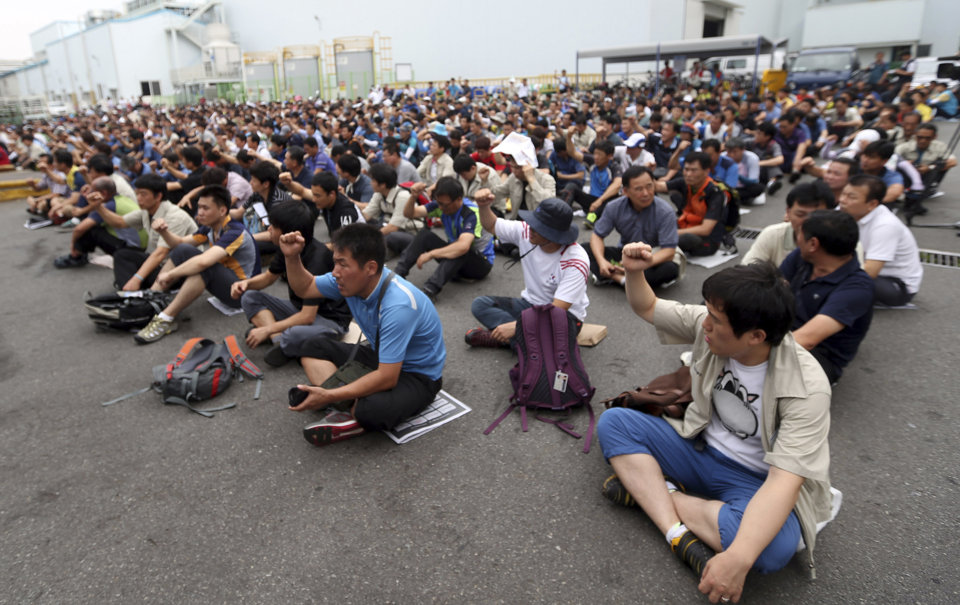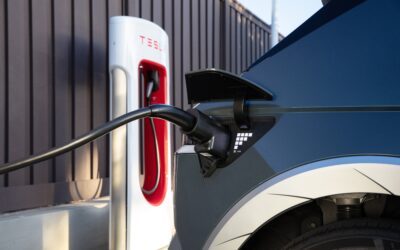Hyundai Motor Co. and Kia Motors Corp. workers in South Korea have agreed to go on strike for a second straight year to demand higher wages. More than 70 percent of Hyundai’s 45,000 guild members voted in favor of authorizing union leader Moon Yong Moon to call for a walkout at the company, Kim Gi Hyuk, a union spokesman, said today.
[ads id=”0″ style=”float:left;padding:5px;”]Workers at Hyundai’s affiliate Kia also voted in favor of a strike plan on Tuesday. The strike may begin as soon as Tuesday, Aug. 20, Kim said earlier. While Hyundai is used to stoppages — workers have gone on strike in 22 of the past 26 years — the walkouts loom as the weaker yen gives Japanese automakers an edge to cut prices or offer incentives on their cars. Hyundai’s net income has fallen for three straight quarters, while analysts estimate Toyota Motor Corp. is headed for a record annual profit.
“If the union does walk out as planned, it will lead to a worse-than-expected third-quarter profit,” Lee Sang Hyun, an analyst at NH Investment & Securities Co., said before the voting results were announced. Still, “it’s unlikely the strikes would go on for long as the union won’t risk giving up their bonuses, which are given only when workers meet production targets.”
Hyundai and Kia’s labor unions have said they’re demanding a pay increase of 130,498 won ($117) a month and for 30 percent of net income to be distributed to workers. The talks started May 28 for Hyundai and July 2 for Kia.
Costly strikes
Hyundai’s union will hold a meeting on Monday, Aug. 19, to set out the specific strike schedule, spokesman Kim said on Tuesday. This year’s strikes are unlikely to lead to full stoppages of all plants in the country like last year, as the union is considering having a rotating schedule among each of the plants, Kim said.
A prolonged factory strike at Hyundai-Kia factories in South Korea could mean that US dealership inventory of certain vehicles, such as the South Korea-built Hyundai Accent and Kia Soul, could dry up in the coming months, depending on the length of the strike, reports Cars.com’s blog, Kicking Tires. The two brands together rank sixth in US sales and fifth in global sales.
Stalled wage talks at Hyundai last year led to the costliest strike in its history, causing a production shortfall of 82,088 vehicles and an estimated 1.7 trillion won in lost sales. Hyundai sent a letter to the union on Tuesday requesting that the talks resume, according to an e-mailed statement.
[ads id=”0″ style=”float:left;padding:5px;”]Militant unions
The vote at Hyundai, which has the nation’s biggest workers’ guild, signals the resurgent militancy of South Korean labor unions as unemployment rises and employers shift production overseas. Past Hyundai union protests have led to clashes between police and militant unionists armed with steel pipes and Molotov cocktails.
The number of South Korean work days lost on labor disputes more than doubled to 933 days last year from 429 in 2011, according to data compiled by the nation’s Ministry of Employment and Labor.
In 1993, the Bank of Korea cited protracted labor strife at Hyundai as a key reason for its decision to lower its gross national product estimate. Prior to 2008, the union went on strike every year except one, costing what Hyundai estimates to be more than 1 million vehicles valued at 11.6 trillion won in lost sales.
U.S. incentives
Moon Yong Moon was elected as Hyundai’s union leader in 2011 after pledging to be a tougher negotiator than his predecessor, Lee Kyung Hoon, who was elected to a two-year term in 2009 after pledging to curb unnecessary strikes. Moon’s activism in past protests led him to be arrested four times and laid off by the company three times since he joined Hyundai’s union in 1988.
The won has gained 26 percent against the yen in the past year, curbing Kia and Hyundai’s competitiveness against Japanese automakers, which are also big exporters to the United States. Hyundai’s incentives in the U.S. surged 47 percent through July from a year earlier. That compares with a 1.7 percent decline in Toyota’s incentives and the market average of a 2.4 percent increase, according to Autodata Corp.
Hyundai’s sales dropped 4 percent to 223,594 in EU and EFTA countries in the first half, according to data from the industry organization ACEA. Deliveries at Kia rose 1 percent in the same period to 175,453, ACEA said.
Source: [Autonews]
Image Credit: [Yahoo News]






